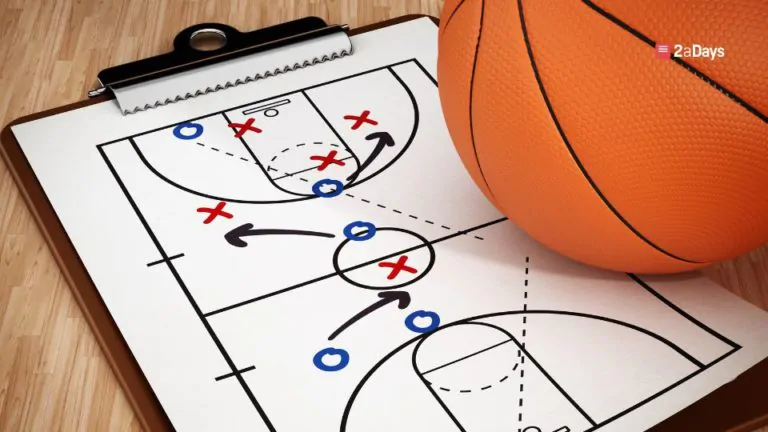As a parent of a former collegiate athlete who played soccer and tennis, and now a parent of a son who plays football at the D3 level I understand how important the recruiting process is for a young adult who is looking to play at the next level. The pressure that they feel can be incredibly overwhelming for them. They put in countless hours of practice, training and thinking about their sport/sports. So getting into their dream school is very important to them. As a parent, it is our job to help guide them through life as well as the recruiting process. You need to be there to support them mentally and assure them that there is a college out there for them. And as long as they take their time and do not feel pressure from coaches and parents, they will make the right decision. Most important the college that they choose they can see them attending if they did not have their sport. As a parent it's hard to shut our mouths, we might want to push them in the direction that we think is best for them, but must of the time pushing a child is not the way to handle your child. Here are some solid tips to help parents get through the recruiting process.
Don't add undue pressure.
You want the best for your child, but you can't force through the recruiting process. Nagging young adults will breed and unhappy athlete, and they will push back, and then everyone will end up hating the process. Instead of creating that added pressure for your child, try to motivate them instead. Set aside specific days and times to discuss what colleges that they are interested in. Have a folder and take notes on their thoughts about the schools, the pros and cons can help with making final decisions. Right from the start figure out what is essential to your child's college journey, is its location, athletic facility, do they have their major, distance from home, etc.
I would not recommend talking about the recruiting process on a daily basis; this will frustrate your child. A quote from a collegiate soccer player, ” I wouldn't have been motivated at all during my recruiting process if my parents were always nagging me about emailing college coaches. I was determined on my own; I wanted to play soccer in college more than anything; therefore I was proactive and didn't need to be continuously reminded to reach out to prospective college coaches.” However, as a parent, you know your child best. If a gentle suggestion is what they need, then give it to them. But encourage them to be open with you by saying, “Let me know if I'm pushing you too hard, I don't want to stress you out.” This should be an exciting process, not an overwhelming one.
Hold your child accountable.
No matter how active you have been in your child's athletic experiences thus far (assistant/head coach, manager, etc.), is the time for your child to take their life into their own hands. Trust that you guided your child to be a responsible adult and give them the wings that they deserve. While some college coaches want to meet the parents, they ultimately want to hear from the potential recruit. Do not speak for your child, do not brag about your child, but most important do not push a coach to play your child. The athlete has to work hard to earn that right. Nowadays coaches will stop looking at a recruit due to the aggressiveness of a parent. It's called restraint so please have some. It is okay to assist your child with crafting emails to send to coaches. There are many sites have mock emails to help you with drafting up an email to coaches. Make sure you explain to your child that personalizing emails to suit the coach that they will be talking to is best. Side note: Explain the importance of getting right back to a coach if they should email or call your child. You do not want to leave a potential coach waiting, because if you do another athlete who got back to him might spark his interest.
Moreover, you want your child to start to cultivate a relationship with their potential coach, and this will be an ongoing process. Know your boundaries when it comes to communicating with a coach. All coaches are different so you will need to figure out what that coaches teaching style is. Your child will have to figure out can you talk to the coach of the whim (most of the time you can), or should you set up a time to speak. Tip: it's essential that your child learns how to soft sell themselves.
Be supportive.
Support is imperative for your child's success and for helping them along the path of playing at the colligate level. Constructive advice is essential; your child wants you to be honest with them but don't be nasty honest. Of course, as parents we would like to say, ” I know what's best, you need to listen to me, I paid for your training and sacrificed for you.” Those are not the words that will help your child. You can say, “Can I offer some advice, do you have time to talk, can we figure out a time to draft up some coach emails, do you need help.” A high school soccer player, “I was always a soccer player that hated letting my dad down. Therefore, I would work extra hard when I knew he was on the sideline cheering for me.
Nothing affected my game more than getting negative feedback from him during or after some games.” Positive conversations work best!
Every athlete has good days and bad days; so when the time comes for your child to be scouted, they will inevitably be nervous/excited. This is the time where they need to your support your child the most, don't coddle them but encourage them to play their best but more importantly tell them to have fun. College coaches will be watching them intently, and they will feel their presence, and for the most part, this will make them feel nervous. If you care about this process, you will not put undue pressure on your child by coaching them before a game.
Additionally, if they did not play well during a game when a scout was there, do not make them feel as if they failed, there are more games to be played and other scouts. Encourage them to stay driven, and keep reaching out to other coaches.
Be realistic.
Please do not live vicariously through your child's recruiting process. You may have played at the Division I level or maybe dreamt about it but did not succeed, but do not push your dreams onto your child. Let them make their own decisions about what division they want to play at, what type of school and how far they want to go. Do not push them to go to the school that you went to. Do not put limits on your child as far as what division they should apply for. Meaning do not limit them to just applying to the top Division I schools in the country and miss out on other great athletic programs at the Division II and III levels. You can also have them discuss the recruiting process with their high school/travel coaches about the best possible options for them in regards to which level of play best fits their needs.
Tip: Never compare your child to his/her teammates or to other siblings.
Academics are important too.
Just because your child is being recruited, doesn't mean they get to slack off in the classroom. A friend of mine son was recruited to play basketball for Duke, his senior year he decided that he did not have to put effort into his studies because he had gotten into college. Senior year, the first semester he got a D plus, yes, you guessed it, his scholarship was revoked. Staying consistent with your grades throughout high school goes without saying. This is especially important during their junior year; you want to step up your classes, take honors and a few AP classes if possible. If honor's or AP are out of your child's reach, then they need to be getting an 85 or above in these classes. Remember colleges want a well-rounded athlete. Therefore, make sure your child knows that balance is critical during the recruiting process. Balancing athletics, school and social life will also be something they have to learn before college not during college. Playing high school sports is a breeze compared to colligate sports.
Final note: make the recruiting process an easy one for your child, listen to what they are saying and what and do not lecture them. Make your college visits eventful and look at the visits as doing something as a family. Staying positive and listening to your child and what they want and need will go a long way.
* Originally published on March 16, 2016, by Tara Sires







